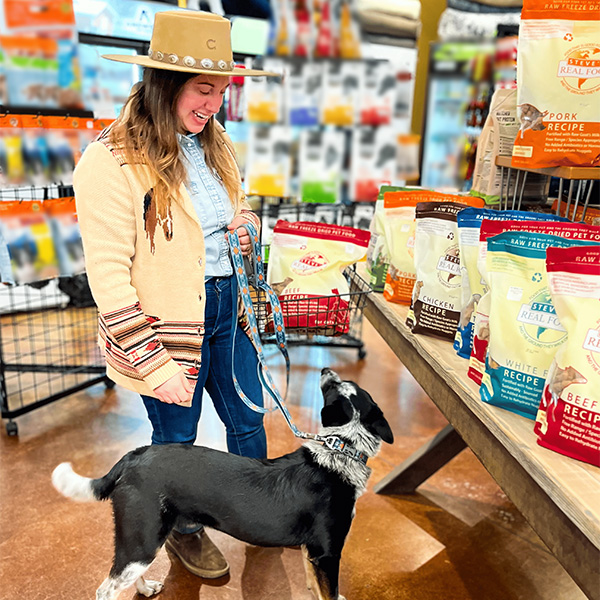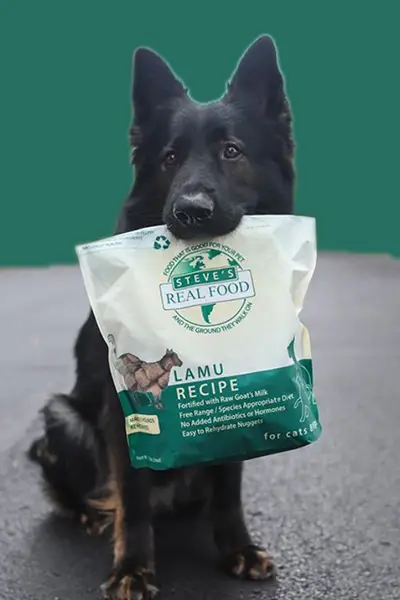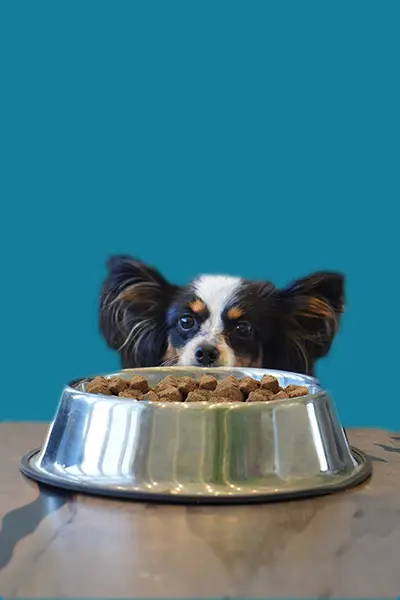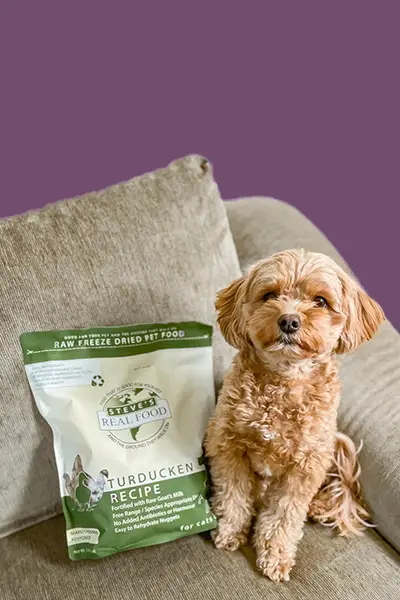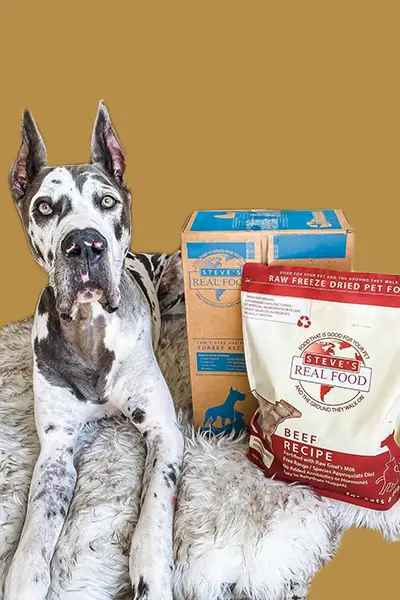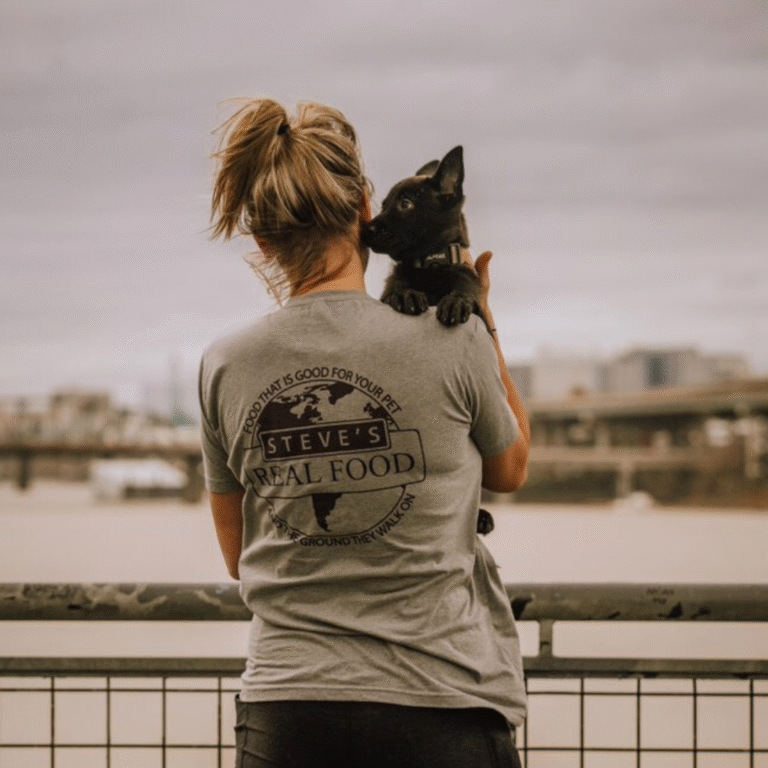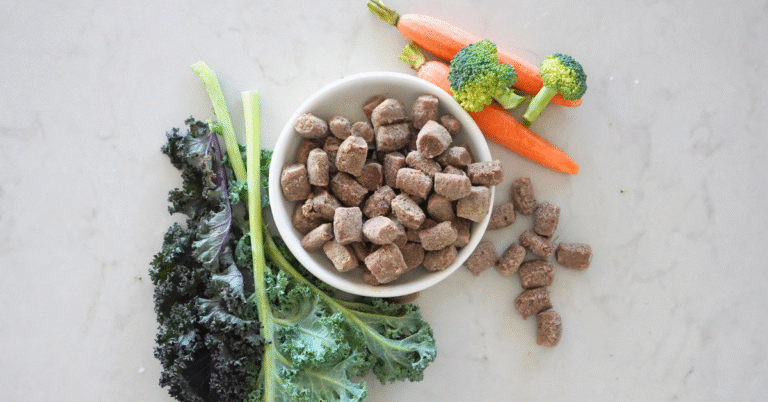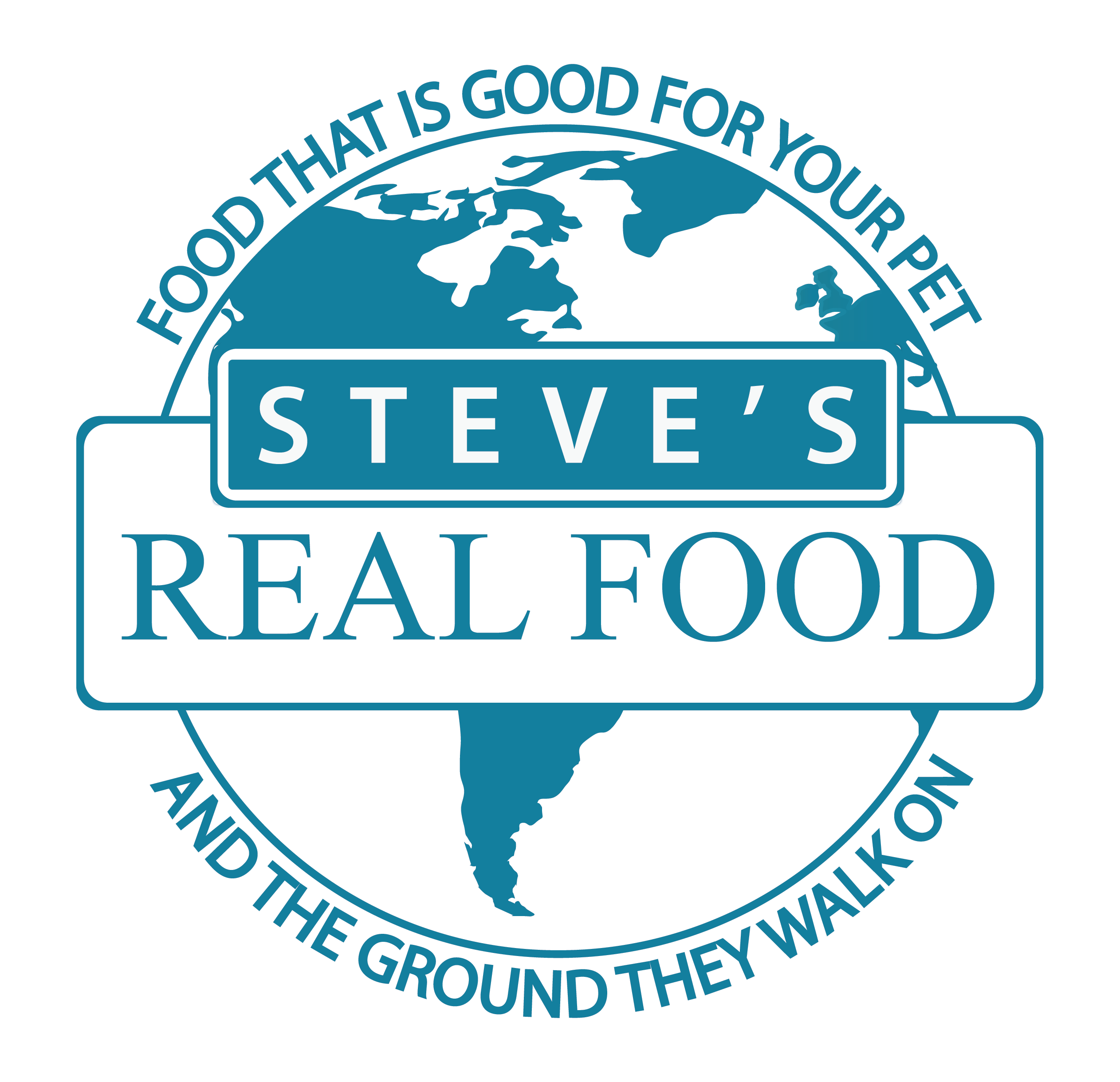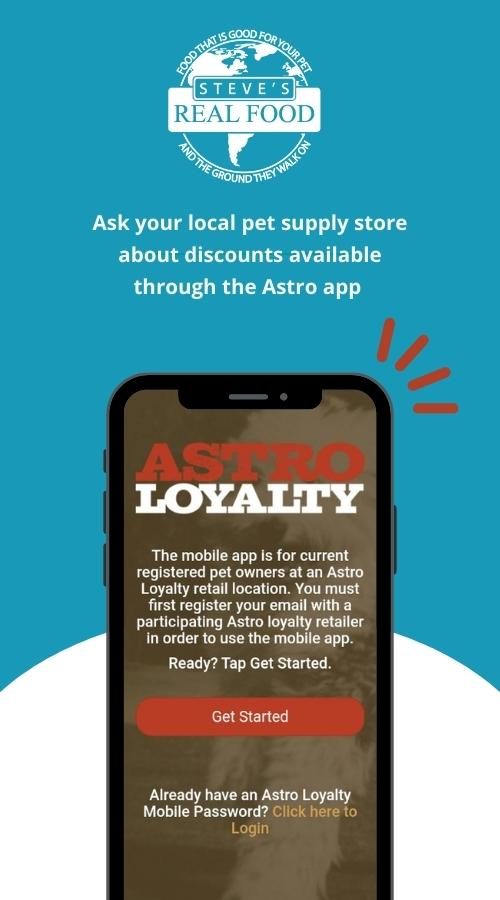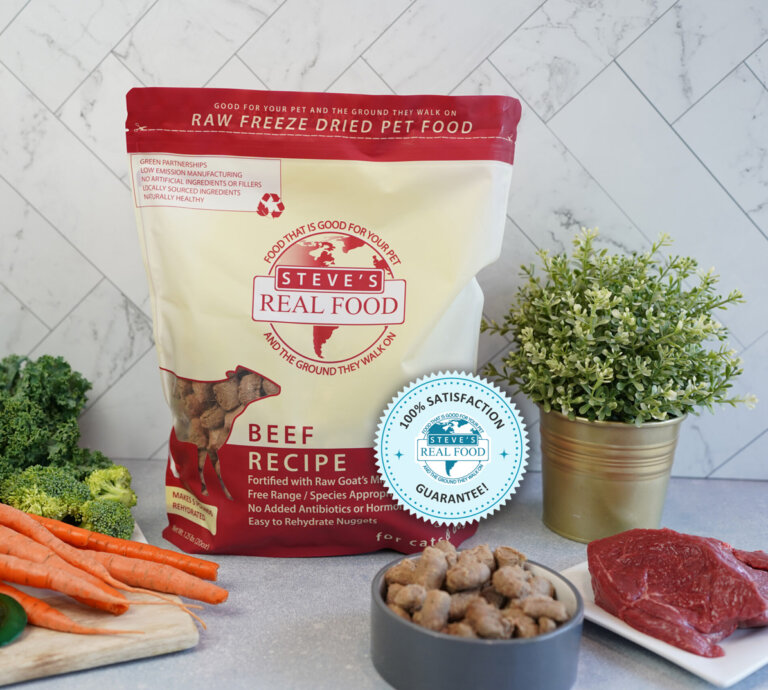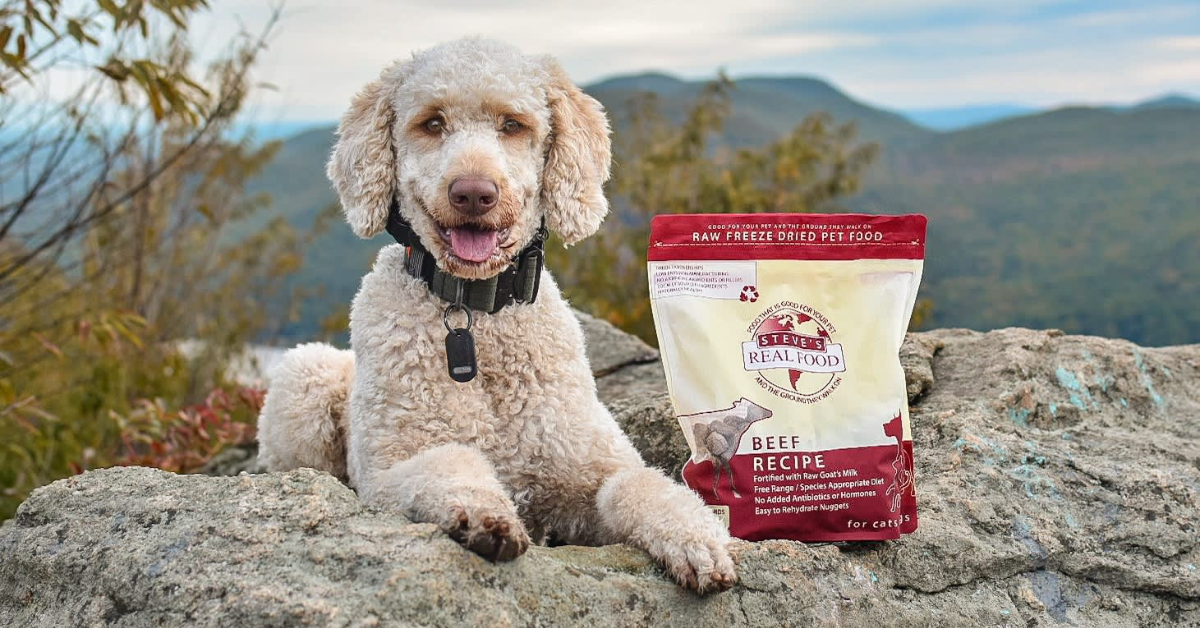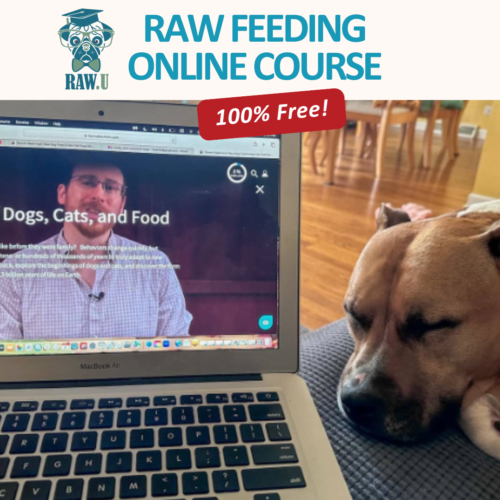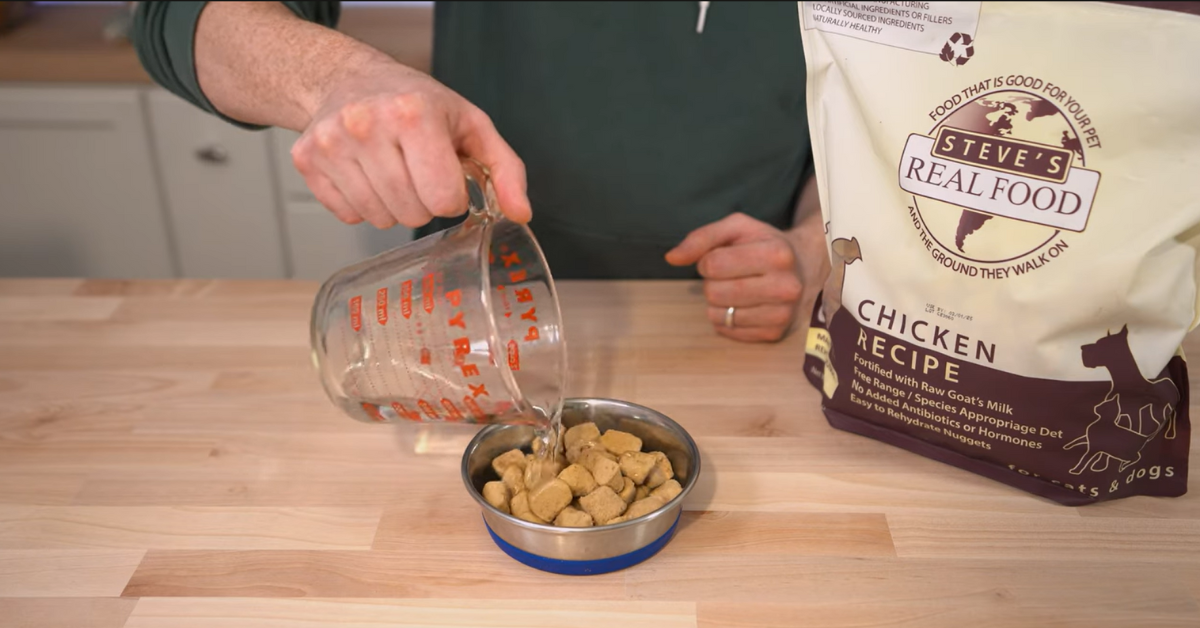Is your pet struggling with digestive issues like gas, bloating, or loose stools? Many pet owners have turned to raw food to address these common problems—and for good reason. Raw food supports your pet’s natural digestive processes in a way that cooked food can’t. Let’s dive into why raw food for dogs and cats can make a real difference in your pet’s digestive health.
The Digestive Power of Enzymes
What Are Enzymes?
Enzymes are proteins that speed up chemical reactions in the body. Enzymes play a crucial role in digestion and blood clotting for your dog or cat.
What Are Digestive Enzymes?
Digestive enzymes such as Amylase (breaks down starch into sugars) or Lipase (breaks down fats) help to break down food within the digestive tract. These enzymes occur naturally in raw food and are destroyed by high heat.
Raw Food is Packed With Enzymes
One of the most significant benefits of raw pet food is that it is naturally packed with digestive enzymes. Because raw food is not subjected to high temperatures during a cooking phase, these enzymes remain intact and active – even after going through HPP. This means your pet’s body doesn’t have to work overtime to break down their meals. This leads to better nutrient absorption and fewer digestive issues like bloating, gas, and diarrhea.
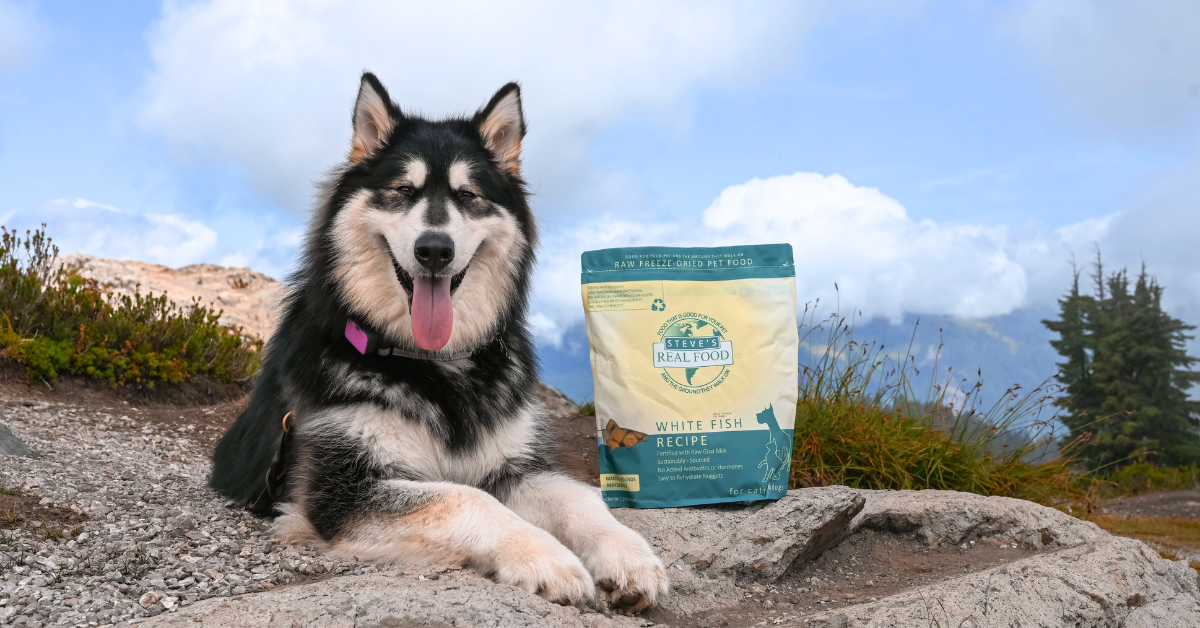
The Importance of Protein in Digestion
What Are Proteins?
Proteins are large molecules of amino acids that are the building blocks for body structures. Proteins are essential for building muscles, repairing tissues, and supporting immune function. Since dogs and cats are carnivores, protein is crucial for maintaining a healthy body in your pet’s diet.
What Foods Are High in Protein?
High-quality meats are the best protein sources for pets as they provide the essential amino acids to support muscle growth and overall health.
Providing Protein in Raw Food
One of the most significant issues in the industry today is using plant-based protein boosters, like chickpeas, peas, and lentils, instead of high-quality meat. While these plant-based ingredients can increase the overall protein percentage on a pet food label, they don’t provide the same amino acids as animal-based proteins.
Dogs and cats have specific amino acid requirements (that’s why they’re called ESSENTIAL amino acids), many of which are only found in meaningful amounts in animal proteins. For example:
- Taurine (essential for cats, conditionally essential for some dogs) is found in meat but absent in plant proteins. A taurine deficiency can lead to heart disease (dilated cardiomyopathy) and other serious health issues.
- Methionine & Cysteine play critical roles in skin, coat, and immune health and are abundant in meat but limited in plants.
- Lysine is necessary for muscle growth and immune function and is much more bioavailable in animal proteins.
When pet food companies use chickpeas, lentils, or other legumes to boost the protein content, the food may meet the required crude protein percentage on the label, but it often lacks the full spectrum of essential amino acids pets need to thrive. Over time, this can lead to nutritional deficiencies, poor muscle maintenance, and health issues like heart disease or poor digestion.
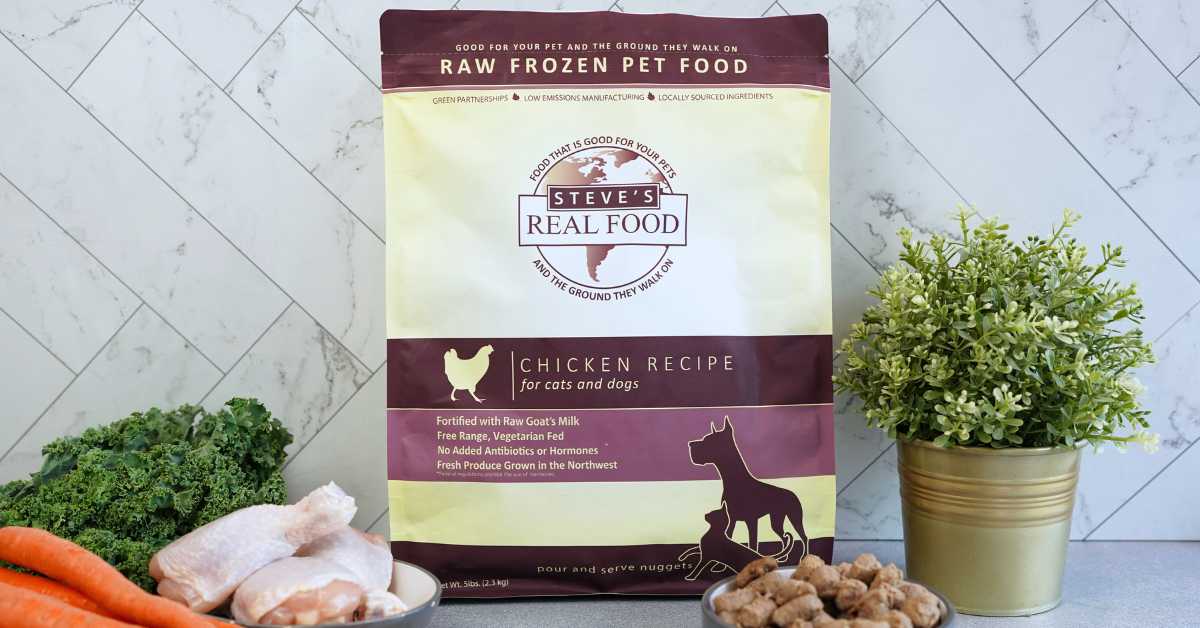
Probiotics for a Healthy Gut
What Are Probiotics?
Probiotics are live bacteria that support your pet’s digestive health. At Steve’s Real Food, we ensure our food is rich in probiotics by adding goat milk, a natural source of beneficial bacteria. High-heat processing in kibble destroys both harmful and beneficial bacteria, but raw food retains its nutrients while providing probiotics through this wholesome addition.
Why Probiotics Matter for Dogs and Cats
- Aid in Digestion – Probiotics help break down food more efficiently, making it easier for pets to absorb essential nutrients.
- Boost Immune Function—The gut houses a large portion of the immune system, and a balanced microbiome helps fight off harmful bacteria and infections.
- Reduce Digestive Issues – Probiotics can help prevent and alleviate diarrhea, constipation, and bloating.
- Support Skin & Coat Health – A healthy gut microbiome reduces inflammation, which can improve skin conditions and allergies.
- Improve Stool Quality – Pets on a probiotic-rich diet often have smaller, firmer stools due to better nutrient absorption.
When your pet’s gut bacteria are balanced, digestion becomes smoother and more efficient, reducing issues like gas, bloating, and loose stool.
Moisture is Critical for Digestion
Moisture in pet food is essential for digestion, nutrient absorption, and overall health. It helps break down food efficiently, ensuring better nutrient uptake while preventing constipation and dehydration. Cats, particularly, have a low thirst drive and rely on food moisture to maintain proper hydration, making dry diets a risk factor for kidney disease and urinary problems.
Raw Food is Full of Moisture
A moisture-rich diet, like raw or wet food, mimics a pet’s natural prey-based diet (70-80% water) and supports gut health, urinary function, and digestion. While dogs may compensate by drinking more water, cats often don’t, making high-moisture food crucial for their well-being. Adding water or bone broth can help if feeding kibble, but naturally hydrated foods are always the best choice.
Learn more about pet food nutrition and raw feeding at Raw.U!
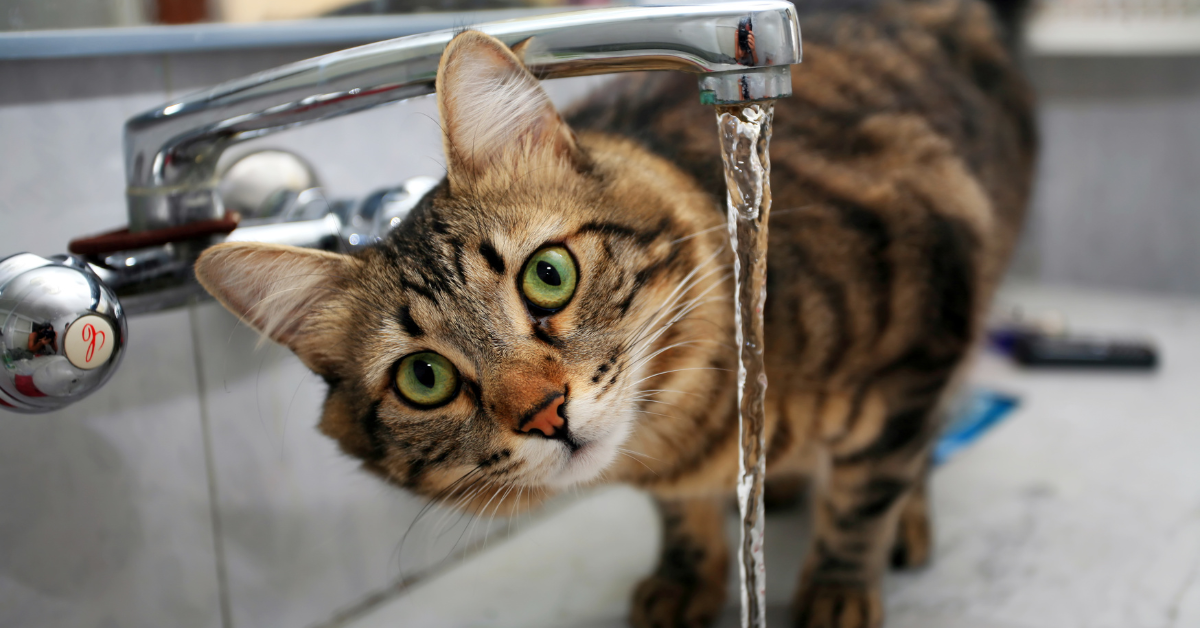
The Proof is in the Poop = Raw Fed Pets Have Smaller, Less Smelly Stools
What Makes Dog/Cat Poop Smell and What Can Help?
The smell of your pet’s poop is directly linked to their diet and how well their body digests and absorbs nutrients. Kibble and processed pet foods often contain fillers, carbohydrates, and low-quality proteins that are harder to digest, leading to larger, smellier stools due to excess waste and fermentation in the gut.
Raw-fed pets produce smaller, firmer, and less odorous stools because their bodies efficiently use the high-quality, species-appropriate proteins and fats in raw food. With fewer indigestible fillers and a diet rich in natural enzymes and probiotics, raw feeding supports optimal digestion and gut health—meaning less poop, less stink, and a happier pet!
Top Signs of Poor Digestion in Dogs and Cats
- Frequent Diarrhea or Loose Stools – Chronic soft stools or diarrhea indicate the gut isn’t properly absorbing nutrients.
- Constipation or Straining – Hard, dry stools or difficulty passing waste suggest dehydration or poor fiber balance.
- Excessive Gas & Bloating – Smelly gas and bloating can be caused by poorly digestible ingredients like fillers and starches.
- Vomiting or Regurgitation – Frequent vomiting (especially undigested food) may signal food intolerance or poor digestion.
- Large, Smelly Stools – Excess waste and strong odors mean the body isn’t fully utilizing the food.
- Dull Coat & Skin Issues – Poor nutrient absorption can lead to dry, flaky skin and a lackluster coat.
- Excessive Licking or Chewing Paws – Food sensitivities and gut imbalances often trigger inflammation and itching.
- Low Energy or Lethargy – Poor digestion can lead to nutrient deficiencies, reducing energy levels.
- Bad Breath – Chronic bad breath (beyond normal dog or cat breath) can signal gut imbalances.
- Frequent Ear Infections or Yeast Issues – Poor digestion and imbalanced gut bacteria can lead to recurring ear and skin infections.
A species-appropriate, raw diet can help address many of these issues by providing highly digestible, natural ingredients that support gut health and nutrient absorption.
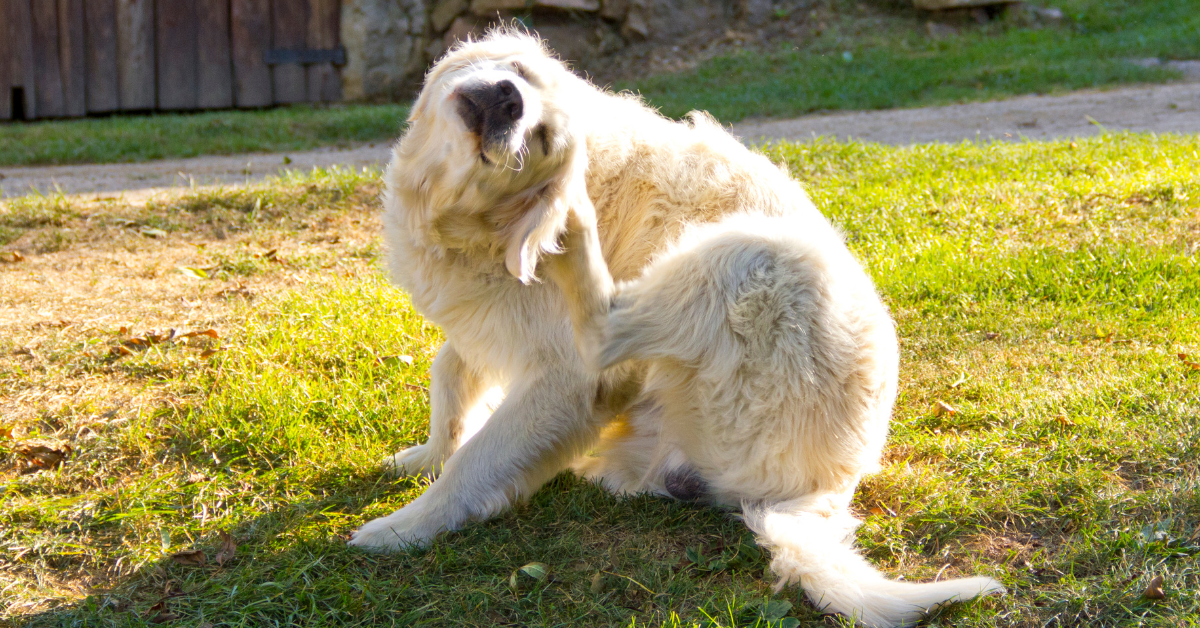
Dog Food for Gut Health
A dog’s gut health is the foundation of their overall well-being, influencing digestion, immune function, and skin and coat health. The best food for gut health is highly digestible, rich in natural probiotics, and free from unnecessary fillers that disrupt the microbiome. Many commercial kibbles contain starches, artificial additives, and low-quality proteins that can lead to inflammation, gut imbalances, and poor nutrient absorption. A raw diet provides biologically appropriate ingredients that support a balanced gut, including fresh meats, organs, and naturally occurring probiotics and enzymes. Feeding a diet designed for optimal digestion can reduce digestive upsets, improve stool quality, and support a thriving gut microbiome for long-term health.
Why Is My Dog’s Poop Runny?
Runny poop in dogs is often a sign of digestive upset, poor food quality, or an unbalanced gut microbiome. Common culprits include sudden diet changes, low-quality ingredients, food intolerances, or an overload of carbohydrates that disrupt digestion. Some dogs also experience loose stools when they consume highly processed foods with artificial additives or when their diet lacks the necessary enzymes for proper breakdown. In contrast, a fresh, raw diet can help regulate stool consistency by providing highly digestible proteins and natural fiber, promoting firmer, more compact stools. If your dog frequently has loose stools, evaluating their diet and considering a switch to a species-appropriate, moisture-rich diet can be a game-changer for digestive health.
Why Is My Dog So Gassy?
Excessive gas in dogs is often linked to poor digestion and an unbalanced gut microbiome. Many commercial pet foods contain high levels of carbohydrates, fillers like soy or corn, and difficult-to-digest proteins that ferment in the gut, producing excess gas. Dogs that eat too quickly, have food sensitivities, or lack beneficial gut bacteria may also experience chronic flatulence. A raw diet can significantly reduce gas by eliminating hard-to-digest fillers and providing high-quality proteins and naturally occurring digestive enzymes. Additionally, raw-fed dogs tend to have a more balanced gut microbiome, preventing excessive fermentation in the intestines. If your dog is constantly clearing the room with their gas, a diet rich in fresh, whole foods may be the solution to calmer digestion and a happier belly.
Give Your Pet the Best with Raw Food
If you’re tired of watching your pet struggle with digestive discomfort, raw food may be the solution you’ve been looking for. Raw food supports a healthy digestive system with species-appropriate proteins, natural enzymes, and moisture.
Ready to make the switch? Visit our Store Locator to find Steve’s Real Food near you, or buy online at RawPetFood.com.
 Beef
Beef Chicken
Chicken Whitefish
Whitefish Pork
Pork Lamb
Lamb Turkey
Turkey Turducken
Turducken All Protein
All Protein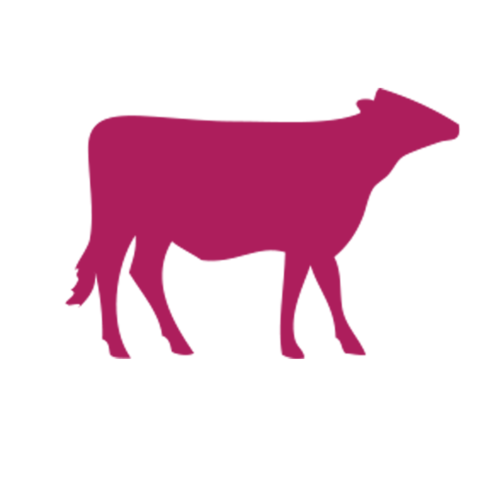 Beef
Beef Chicken
Chicken White Fish
White Fish Pork
Pork Turkey
Turkey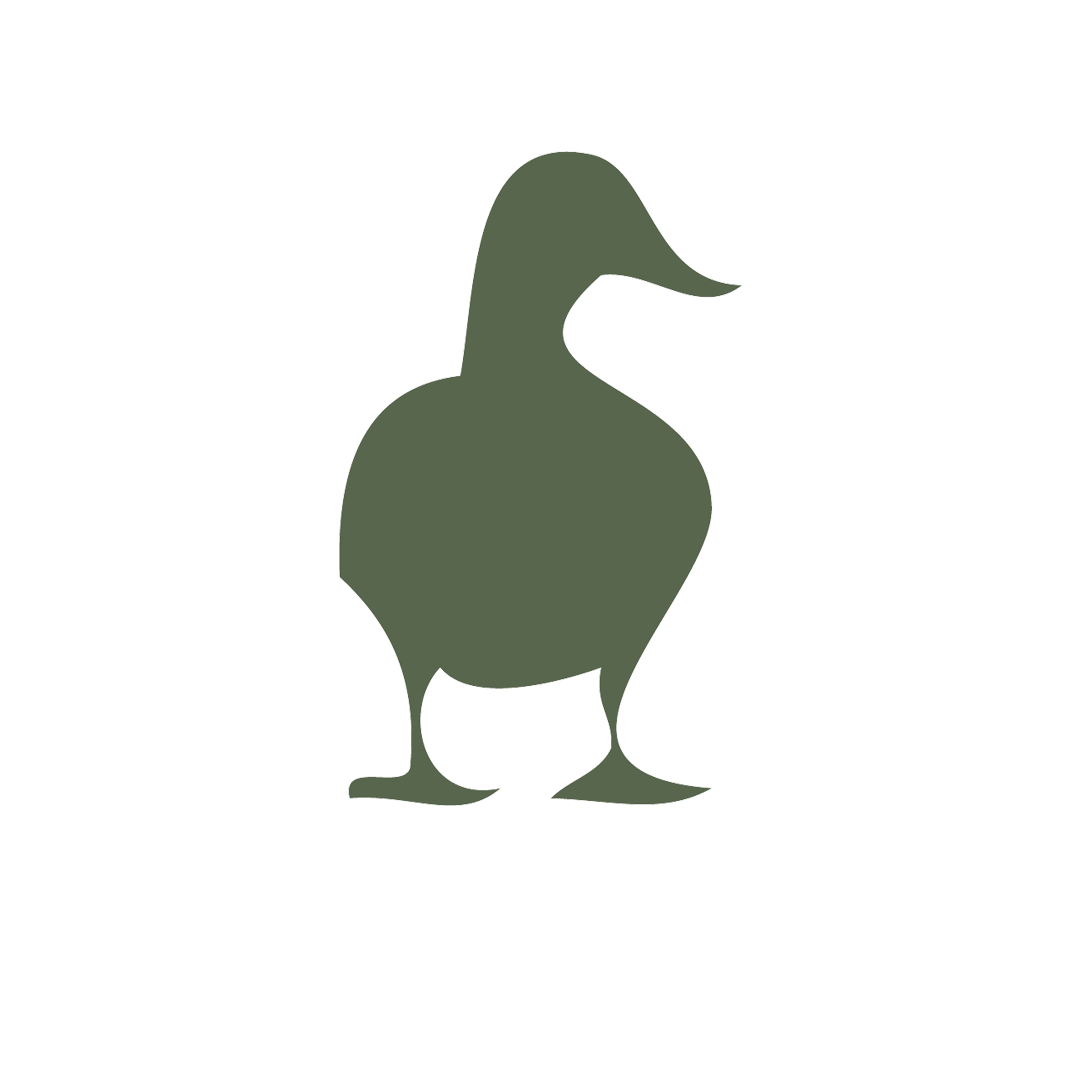 Duck
Duck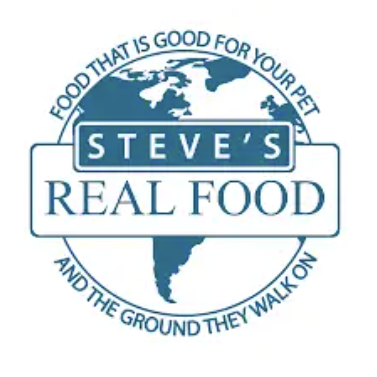 All Products
All Products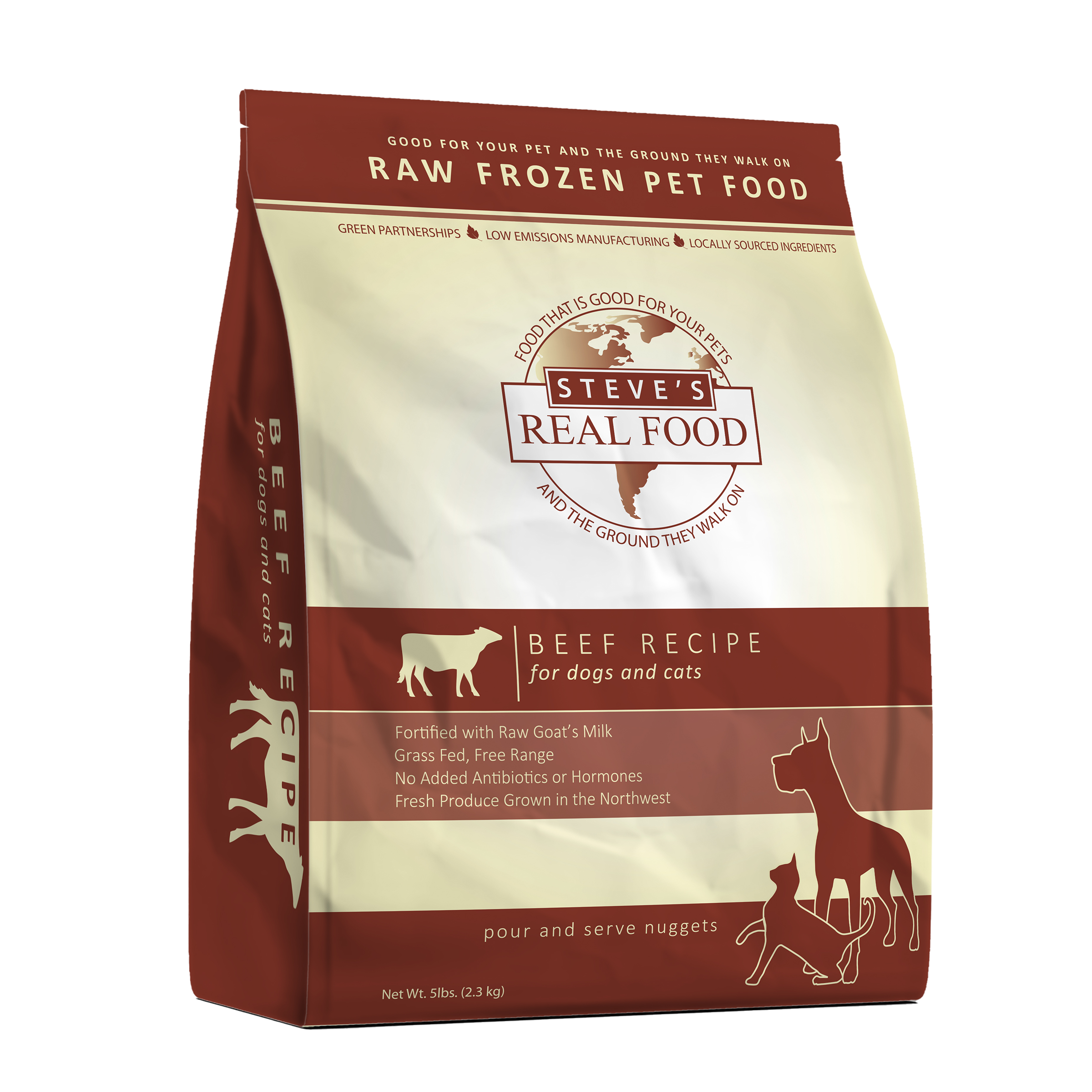 Frozen Raw Pet Food
Frozen Raw Pet Food
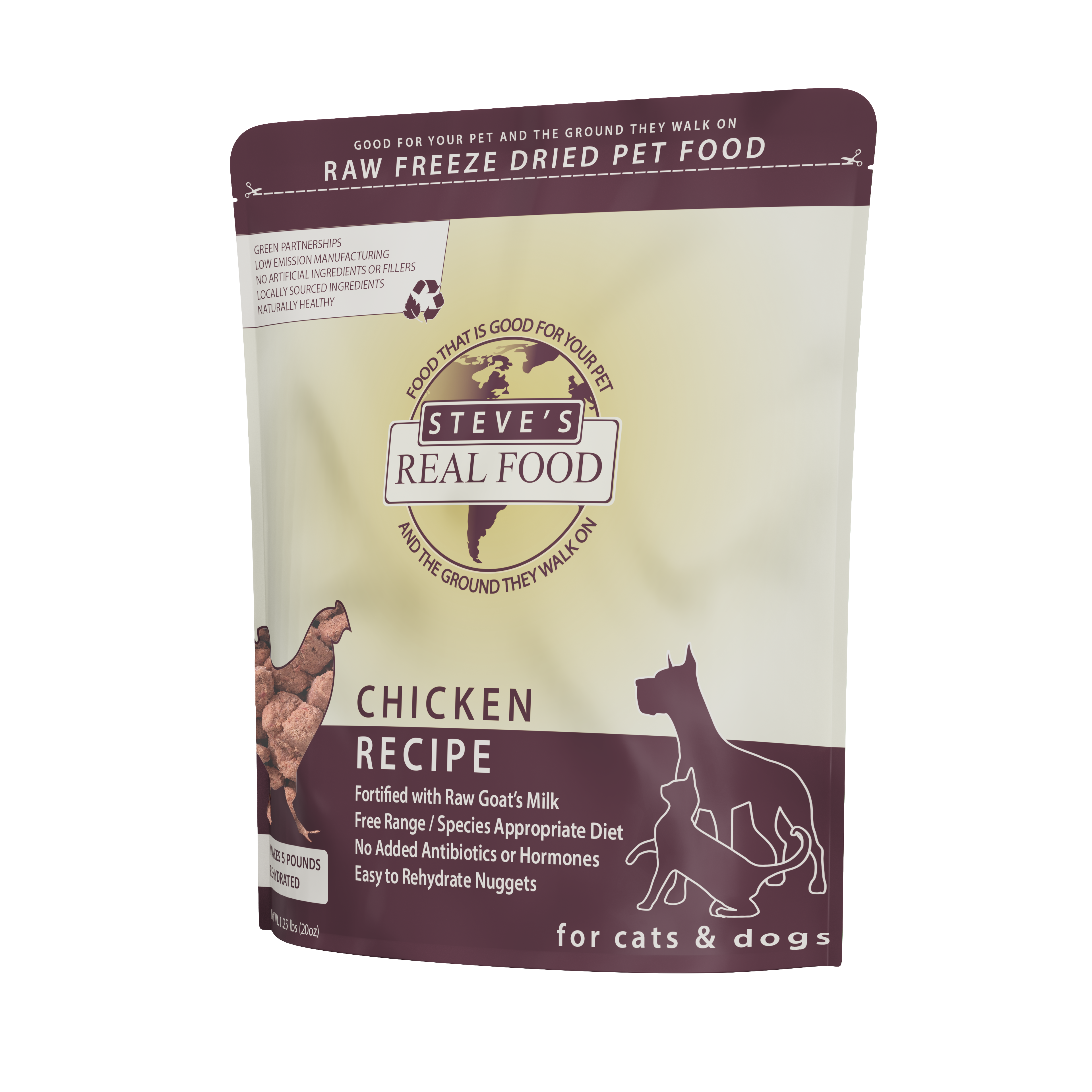 Freeze Dried Raw Pet Food
Freeze Dried Raw Pet Food
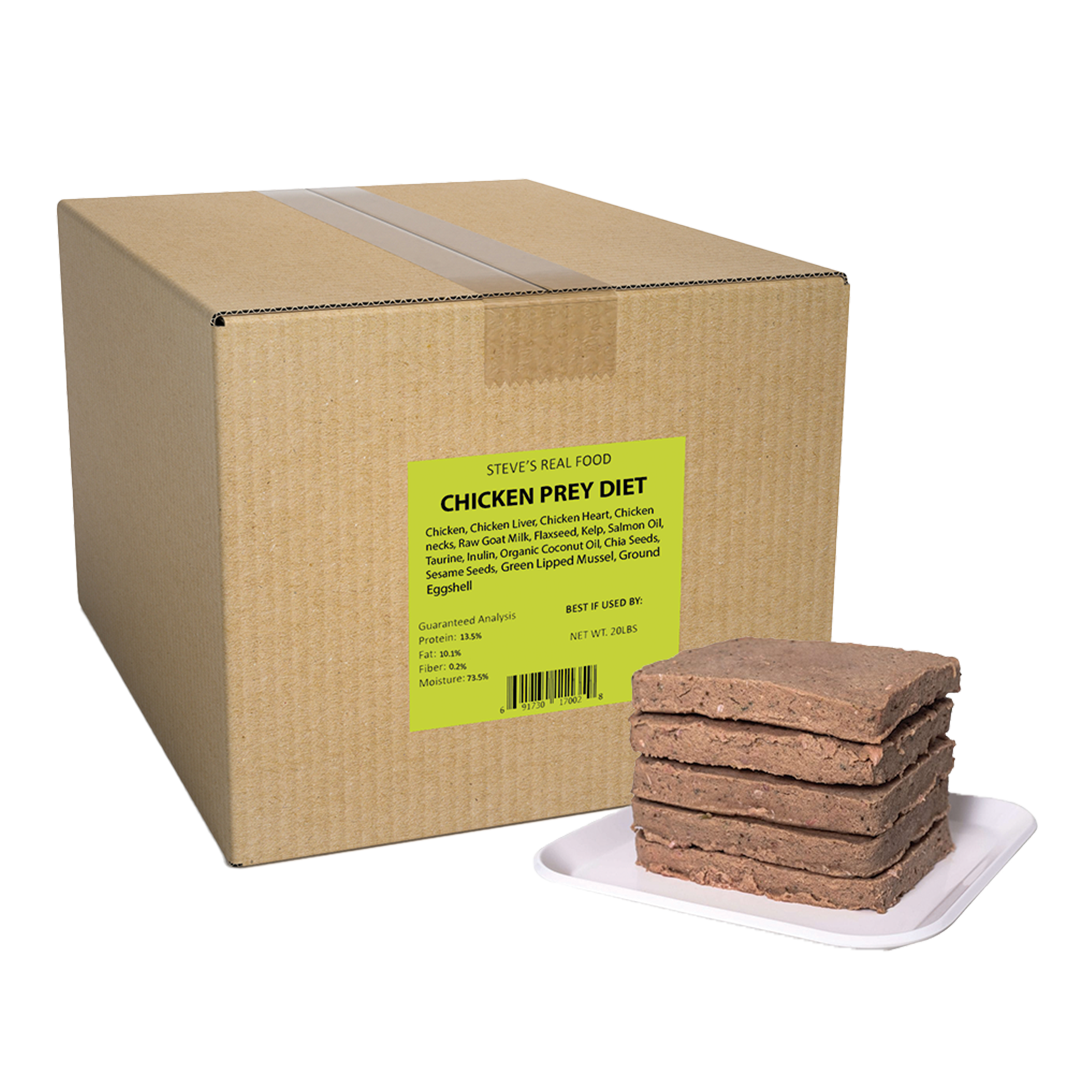 Frozen Prey Diet
Frozen Prey Diet
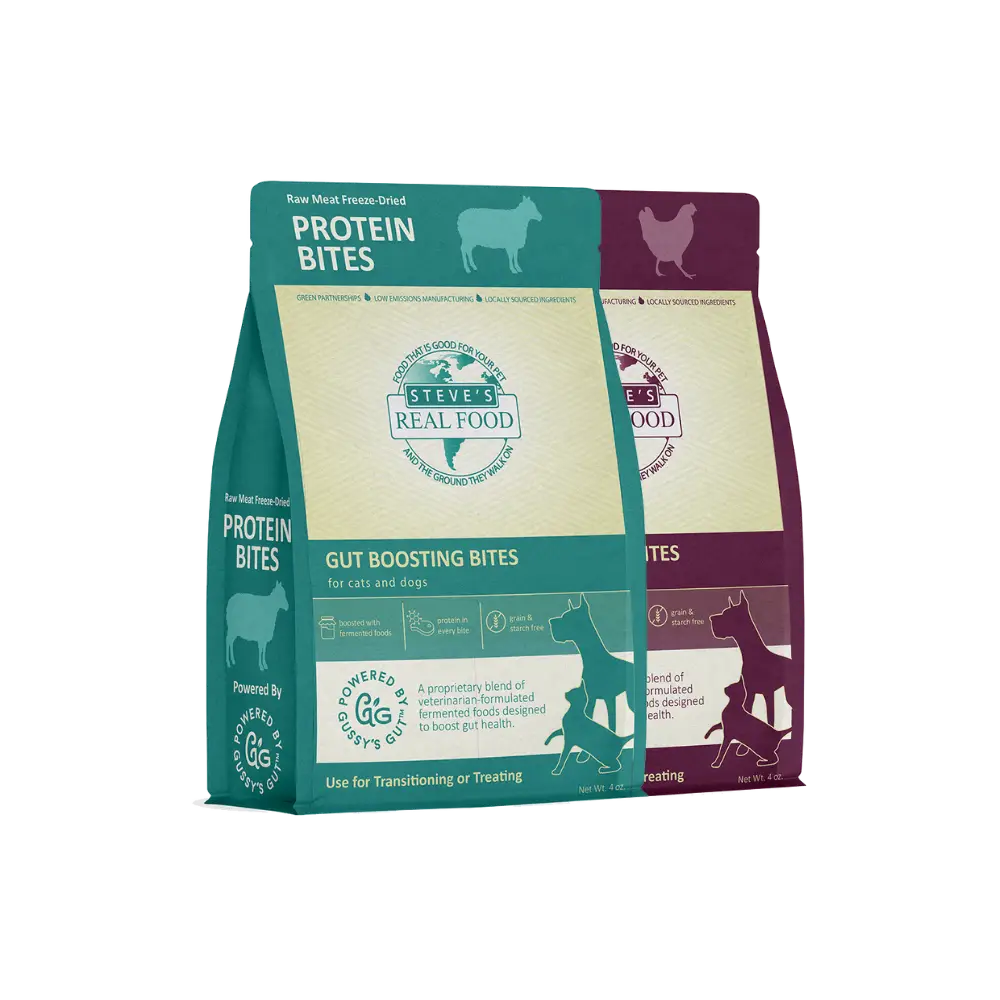 Freeze Dried Protein Bites
Freeze Dried Protein Bites
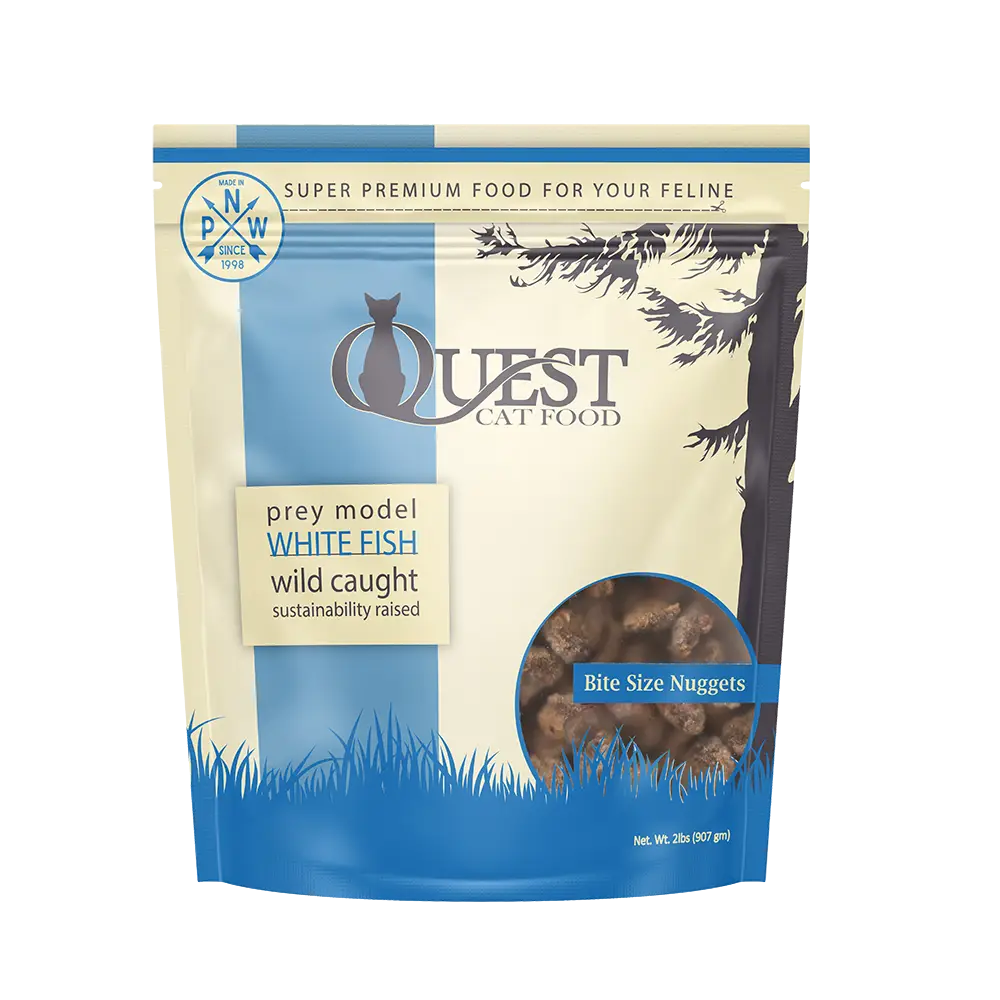 Frozen Quest
Frozen Quest
 Freeze Dried Quest
Freeze Dried Quest
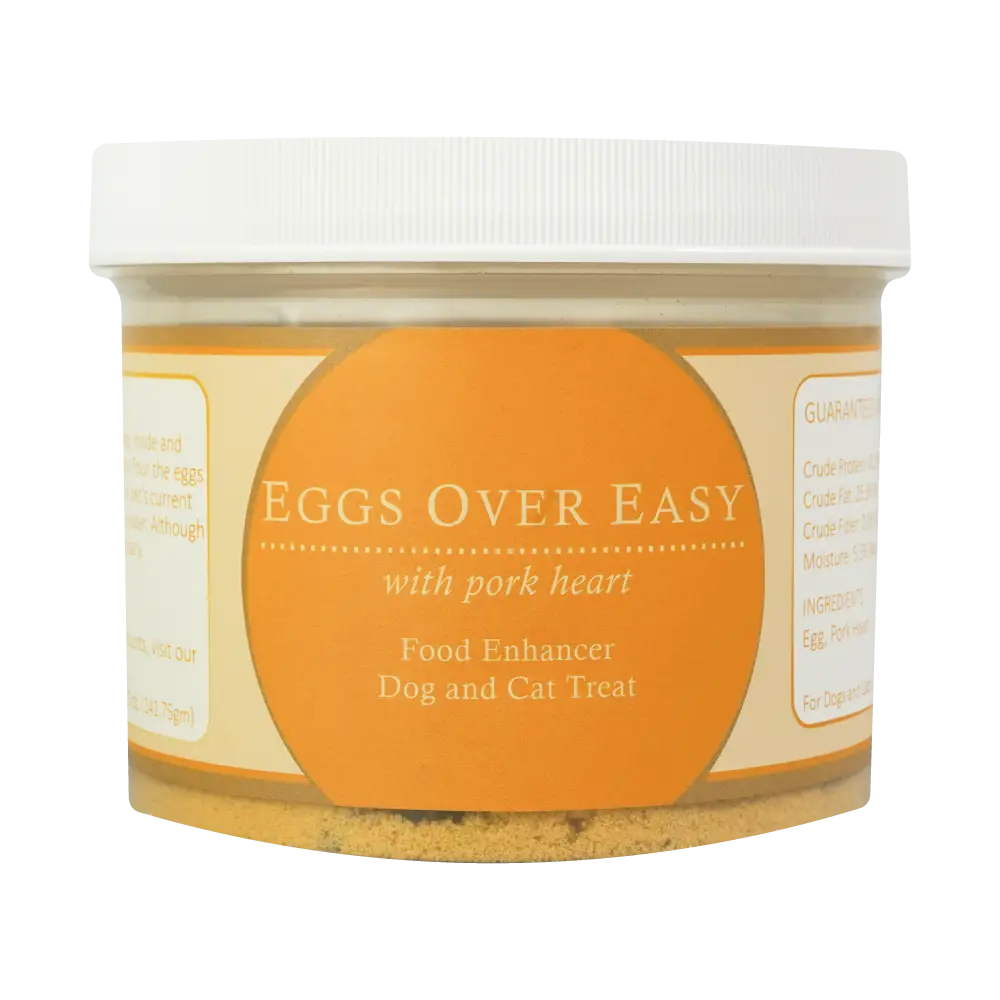 Eggs over Easy
Eggs over Easy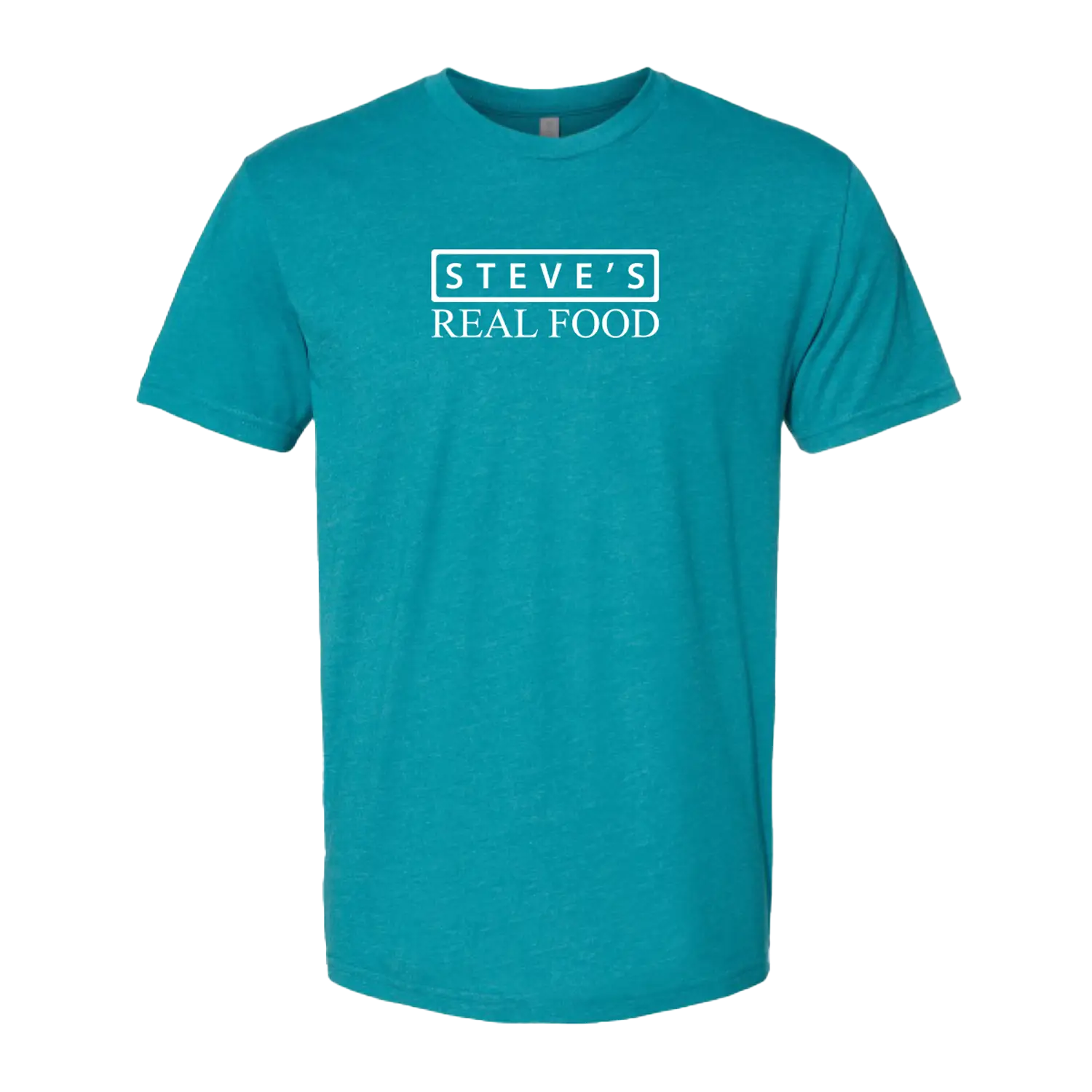 Steve's Merch
Steve's Merch 